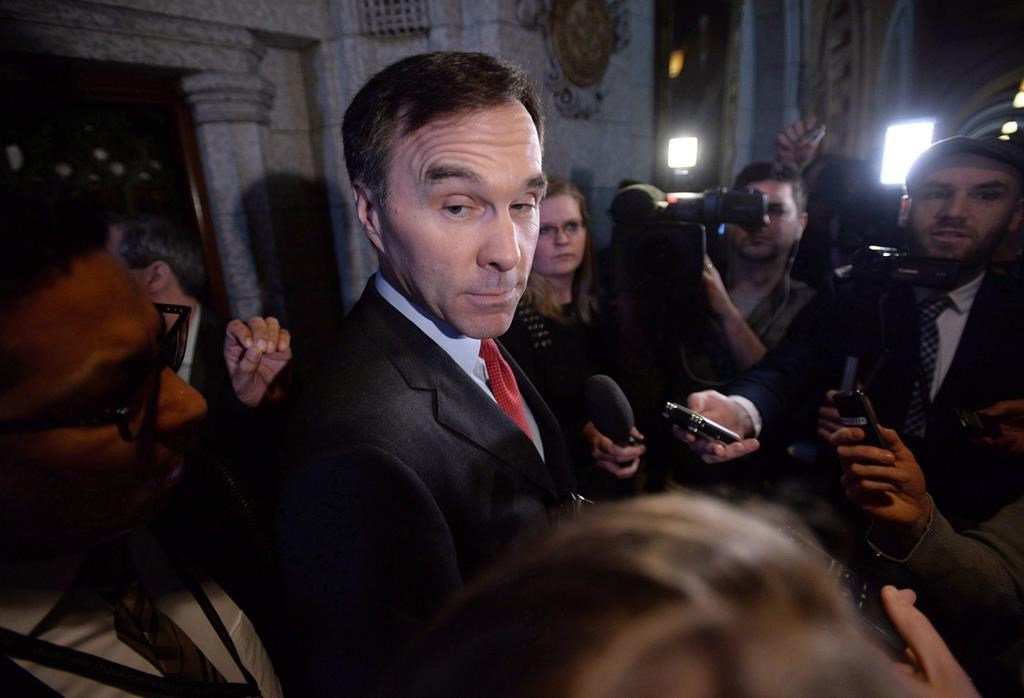Support strong Canadian climate journalism for 2025
The federal finance minister says revamping the Canada Pension Plan is critical to ensuring that future generations of Canadians can retire in dignity, no matter the state of their finances.
Bill Morneau joined his provincial and territorial counterparts in Vancouver on Monday to discuss reforming the national pension program over concerns that some Canadians will struggle financially come retirement.
"We’ve heard from Canadians (about) the importance of retirement security," Morneau said before the meeting.
"I’m looking forward to working together with my colleagues across the country to improve the long−term future for Canadians."
The pressure is on to reach a deal as Ontario’s plans to develop its own pension program are well on their way, though the province’s finance minister said his preference would be for a national strategy.
"We want consensus. We want everybody to participate. We want everybody involved," said Charles Sousa, adding that he wants to reach a deal in Vancouver.
Quebec Finance Minister Carlos Leitao was not as optimistic about coming to an agreement on Monday, saying that any change would have to be targeted, modest and gradual to earn his province’s support. So far Ottawa’s plan is only two thirds of the way there, he said.
Leitao put forward a proposal during the meeting that more selectively targets those Canadians who are the least likely to save in order to avoid putting an additional financial burden on low−income earners.
Under the Quebec plan, increased pension premiums would only kick in for those who make more than about $27,000 per year, which is about half the yearly maximum pensionable earnings for 2017.
The proposal argues that supplementing the income of Canada’s lowest earners is better achieved through other government policies, such as old age security and the guaranteed income supplement.
Reforming the pension system needs the support of at least seven provinces representing two thirds of the country’s population, which gives Ontario an unofficial veto over any decision.
The legislation, as currently written, also states that any reforms can only be implemented three years after a federal−provincial agreement is reached.
Coming into the meeting, Saskatchewan and B.C. have suggested economic conditions aren’t right for a change that’s likely to lead to an increase in the premiums that come off workers’ paycheques.
That premium hike is why some critics of the expansion call it a payroll tax, a common refrain from the Opposition Conservatives who oppose an across−the−board expansion of the program.
Federal research has suggested that workers who are the least likely to save for retirement tend to be under the age of 30, earn between $55,000 and $75,000 (although some estimates are higher), and either don’t save enough or lack access to a workplace pension plan.
The federal and provincial governments are looking at a possible increase in the $55,000 cap on annual maximum pensionable earnings, which would result in both higher premiums and increased pension benefits.




Comments